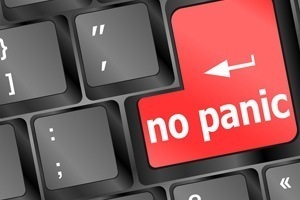 At one point or another, almost every SEO or online business has suffered an unexpected and sudden drop in rankings. With increasing dependence on search engines and the traffic they deliver, any significant fall can have major implications. Consequently, when disaster strike, chaos often ensues.
At one point or another, almost every SEO or online business has suffered an unexpected and sudden drop in rankings. With increasing dependence on search engines and the traffic they deliver, any significant fall can have major implications. Consequently, when disaster strike, chaos often ensues.
You only need to take a quick look at Google Webmaster Central to experience this panic first hand. As misguided, confused or entirely clueless site owners scramble for answers, the truth is often staring them right in the face. So what should you do if your site suffers a drop in rankings for a number of keywords, or, worse still, is de-indexed entirely?
1. Identify where the drops have occurred
Whether you’ve seen that traffic has tailed off or manually checked your keyword rankings only to have an unpleasant surprise, it’s important to establish the root of the problem. For instance, if a few pages have suffered, then the cause and solution are likely to be reasonably straightforward. Remember, search engine rankings are reasonably fluid and are subject to change at almost any juncture, so fluctuations can impact your site – often only temporarily. A review of the content and inbound links could point the way to a simple enough solution.
Things become a little more complicated when issues are site-wide. This suggests that you have suffered some form of penalty, which requires immediate attention. If you’re not in charge of your site’s SEO, talk to the person who is and find out what has been happening. You might well find that Google have discovered some suspicious links within your domain or have just announced a major algorithm update that impacts your site.
2. Seek a solution
To every problem, there is always a solution. When Panda first hit, thousands of desperate site owners flooded the Google Webmasters board seeking help and advice. Unfortunately the answers are usually the same:
- Get rid of your paid links
- Stop scraping content from other sites
- Remove some of your advertising
- Don’t provide followed links to dodgy domains
Whilst the search engines can’t always spot everything that you’re doing, if you’re breaking the rules (knowingly or otherwise) there’s always a chance that you can be caught out. So if you genuinely have no idea, ask for some expert help. Either contact an SEO agency or throw it open to the community through a webmaster forum. Usually they will be able to spot what the issue is and offer a solution reasonably quickly.
The search engines should inform you through Webmaster Tools if your site has been removed from their index and the reasons for this. So you can use this information and clean up any affected areas of the site to comply with the guidelines. Once your penalty period has elapsed, you should be automatically considered for re-inclusion. If not, contact Google.
3. Take action
Whatever your situation, doing nothing is rarely the best solution. So even if rankings have dropped due to a natural fluctuation, there is still a reasonably strong case for optimising the page to counteract any future falls. After all, if you imagine that Google works on a points tally basis, if you are constantly trading places with another site, it indicates that you are on a near equal footing. As such, the only way to stop this is to strengthen your own page.
Algorithm updates can have a major impact on rankings across the board, so it’s always worth keeping up-to-date with industry blogs to see what’s happening. When significant changes are announced, there’s a good chance that there will be plenty of reports available and even some decent advice on improving your site. Take heed and factor this in to your own optimisation.
Finally, if you’ve been caught doing something that you shouldn’t, stop it immediately and begin work on remedying the situation. So if you signed up for a blog network a while back and it’s just been found out by Google, resulting in a penalty for you, request that these links are removed and work on repairing your profile. There’s no quick fix, but it’s important that you get on and take action as soon as possible.
4. Remember, sometimes you are powerless
Google is a law unto itself. They can make changes and play with rankings at will. Anybody that relies on traffic from search engines is placing their business in the rather unreliable hands of the search engine. This shouldn’t put you off, but it’s worth keeping in mind when you suddenly find yourself in a new position, whether it’s better or worse.
All you can do is keep improving the visitor experience of your site and meet all available quality guidelines. If you’re doing everything right, then there’s less chance that things will go wrong.
Image Source
Red No Panic Key On Computer Keyboard via BigStock
Leave a Reply